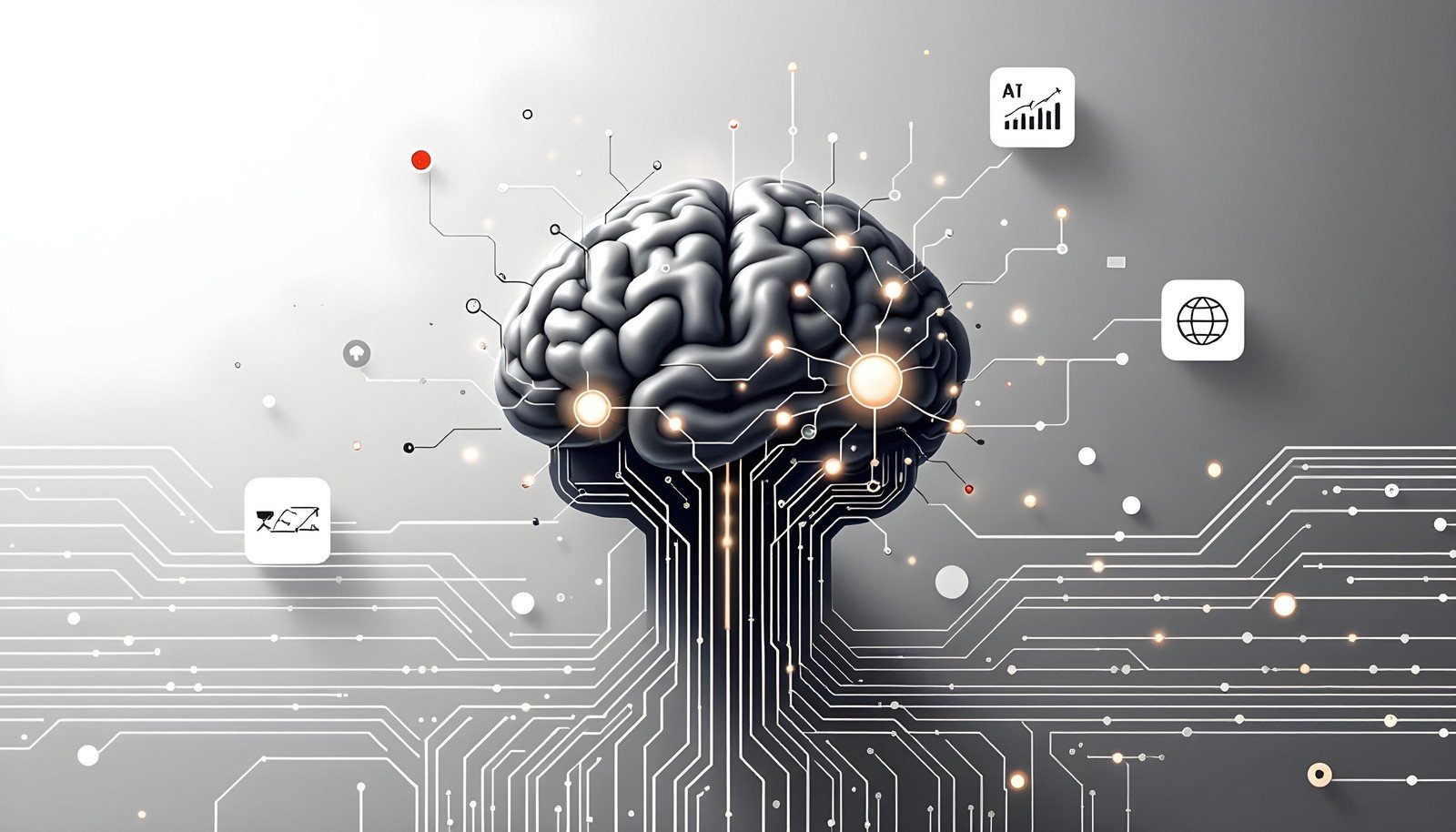Cognitive Computing

Quick Navigation:
- Cognitive Computing Definition
- Cognitive Computing Explained Easy
- Cognitive Computing Origin
- Cognitive Computing Etymology
- Cognitive Computing Usage Trends
- Cognitive Computing Usage
- Cognitive Computing Examples in Context
- Cognitive Computing FAQ
- Cognitive Computing Related Words
Cognitive Computing Definition
Cognitive Computing refers to systems that mimic human thought processes to solve complex problems. These systems use artificial intelligence (AI), machine learning, natural language processing, and data mining to analyze massive datasets, enabling them to understand, reason, and learn from data inputs much like a human brain would. Cognitive computing applications are often used in fields like healthcare, finance, and customer service, where they help interpret vast amounts of data to provide recommendations, predict trends, and improve decision-making processes. Unlike traditional computers, cognitive systems evolve over time, refining their insights based on new data.
Cognitive Computing Explained Easy
Imagine a super-smart assistant that helps you with homework and learns every time you ask it a question. Cognitive Computing is like this assistant but for adults working on big problems. It can understand languages, like how we talk, and it keeps getting smarter by learning from mistakes and new things it finds, just like you do in school.
Cognitive Computing Origin
Cognitive computing was popularized by IBM in the early 2010s with the development of their Watson platform, a powerful AI that competed on the TV show Jeopardy! Cognitive systems are based on advances in artificial intelligence and computational neuroscience, which explore how machines can replicate the functions of the human brain.
Cognitive Computing Etymology
Derived from “cognition,” which means the act of knowing, and “computing,” which pertains to computers and calculations.
Cognitive Computing Usage Trends
Interest in cognitive computing has surged in recent years as industries seek intelligent solutions to interpret large datasets and personalize experiences. Its growth aligns closely with advancements in AI and machine learning, especially in industries like healthcare, where cognitive systems assist in diagnostics, and finance, where they help analyze market data. This term is increasingly associated with innovations in automation, predictive analytics, and decision-making.
Cognitive Computing Usage
- Formal/Technical Tagging: Artificial Intelligence, Machine Learning, Natural Language Processing, Data Analytics
- Typical Collocations: Cognitive computing systems, cognitive technologies, cognitive analysis, AI-powered cognitive solutions
Cognitive Computing Examples in Context
Cognitive computing systems in healthcare can assist doctors by interpreting patient records and predicting potential health risks.
Banks are increasingly using cognitive computing to analyze financial data and detect fraud patterns.
Cognitive computing in customer service enables chatbots to understand and respond to customer inquiries more naturally.
Cognitive Computing FAQ
- What is cognitive computing?
Cognitive computing refers to technology that mimics human thinking to process and analyze complex data. - How is cognitive computing used in healthcare?
It helps in diagnosing diseases, predicting patient outcomes, and personalizing treatment plans. - What makes cognitive computing different from traditional computing?
Cognitive computing can learn from data and improve its responses over time. - Is cognitive computing the same as AI?
Cognitive computing is a subset of AI focused on mimicking human thought processes. - Can cognitive computing replace human jobs?
While it can automate tasks, it’s more likely to augment human work rather than replace it entirely. - Why is cognitive computing important?
It enables smarter, faster decision-making across many industries by analyzing vast amounts of data. - What are cognitive systems?
Cognitive systems are computing systems designed to simulate human cognition. - What role does machine learning play in cognitive computing?
Machine learning enables cognitive computing systems to learn and improve from data inputs. - What companies use cognitive computing?
Many companies, like IBM, Google, and Microsoft, develop and utilize cognitive computing technologies. - Are cognitive systems the same as expert systems?
No, cognitive systems are more advanced; they can learn and adapt, unlike traditional expert systems.
Cognitive Computing Related Words
- Categories/Topics: Artificial Intelligence, Machine Learning, Natural Language Processing, Data Science
- Word Families: Cognition, Cognitive, Cognizance
Did you know?
In 2016, cognitive computing made strides in the medical field when IBM's Watson correctly diagnosed a rare form of leukemia in a patient after reviewing over 20 million oncology research papers in just minutes. This groundbreaking achievement showcased the power of cognitive computing in transforming healthcare, enabling doctors to make more accurate and faster diagnoses, even for complex cases.
PicDictionary.com is an online dictionary in pictures. If you have questions or suggestions, please reach out to us on WhatsApp or Twitter.Authors | Arjun Vishnu | @ArjunAndVishnu

I am Vishnu. I like AI, Linux, Single Board Computers, and Cloud Computing. I create the web & video content, and I also write for popular websites.
My younger brother, Arjun handles image & video editing. Together, we run a YouTube Channel that's focused on reviewing gadgets and explaining technology.



Comments powered by CComment